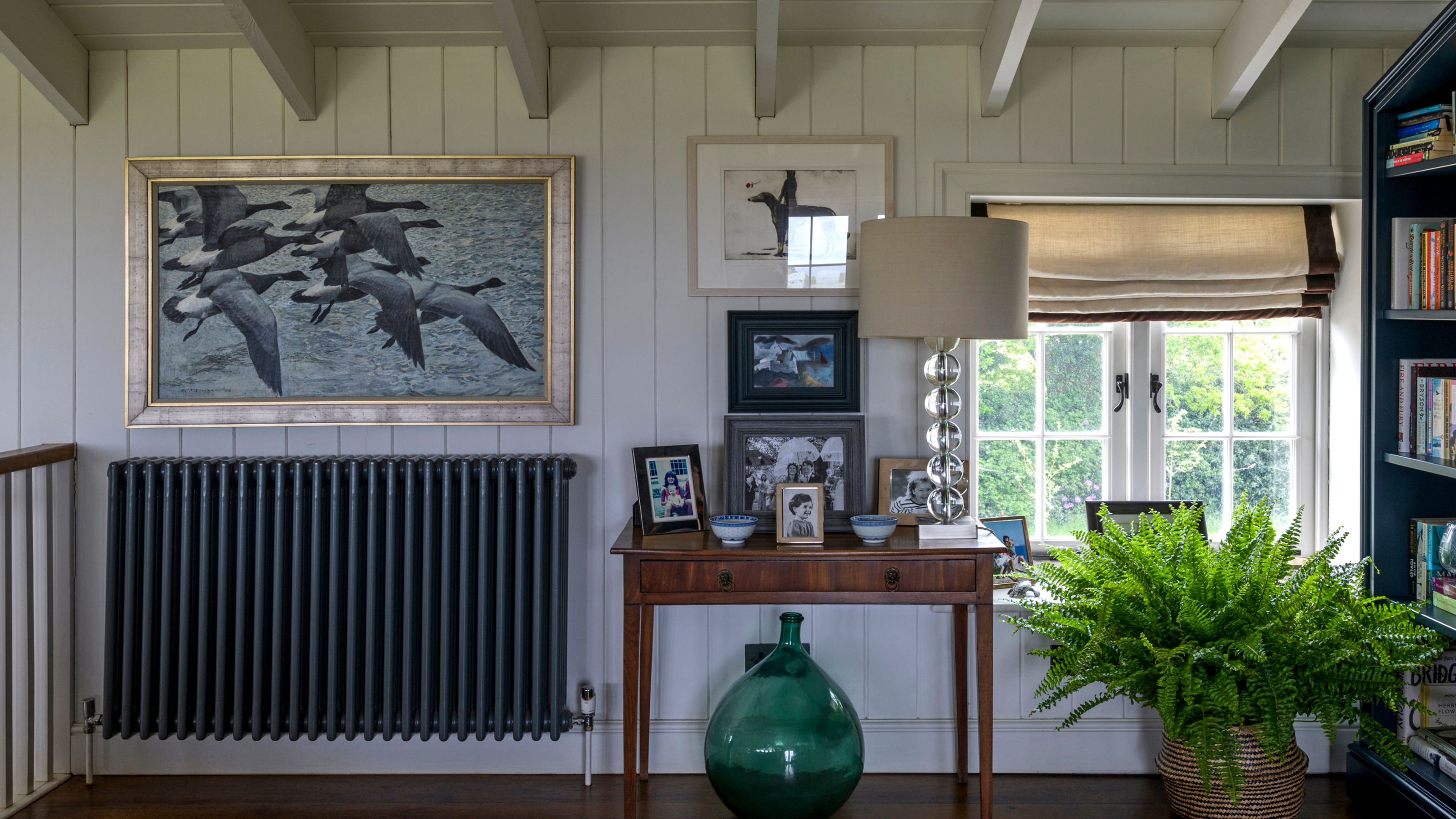How to isolate a radiator in 3 simple steps - experts explain how to carry out this task yourself at home
Learn how to isolate a radiator now just in time for any winter repairs


Sign up to our newsletter for style inspiration, real homes, project and garden advice and shopping know-how
You are now subscribed
Your newsletter sign-up was successful
Learning how to isolate a radiator is a task you can easily do yourself, and is useful if you need to carry out repairs or even replace a radiator without affecting the rest of the heating system in the house.
It is important to keep an eye on any issues with your central heating system. Isolating a radiator is different from simply switching a radiator off. Instead, it refers to disconnecting a radiator from the central heating system.
‘Isolating a radiator involves closing the valves at both ends to stop water from flowing through it while keeping the rest of your heating system operational. This is different from simply turning the radiator off, which usually means adjusting the thermostatic radiator valve (TRV) to stop heat output but doesn’t necessarily stop water flow,’ explains Stephen Day, a Heating Engineer at iHeat.
‘Turning off a radiator using the TRV just stops it from emitting heat, but the water still circulates within it. By isolating a radiator, this completely shuts off the water flow to and from the radiator. This is helpful if you need to work on the radiator without impacting the rest of your heating system.’

Isolating a radiator is something you can do yourself and can be completed in three steps as Jess Steele, heating technology expert at designer radiator specialist BestHeating explains:
- Protect the floor - ‘If you are planning on isolating and removing the radiator for decorating or replacing, you will need to protect your flooring from any water spillage. Place a bucket or containers under the radiator valves and cover the flooring with towels to help catch the water when you drain the radiator.’
- Turn the valves off - ‘Turning both valves off will isolate the radiator from the water supply. Most modern types of radiators have thermostatic radiator valves (TRVs) for increased efficiency. If you have a TRV with a numbered dial, turn the thermostatic valve clockwise to zero. Or, if you have a manual valve, keep twisting clockwise as far as it will go to turn it off.’
- Turn the lockshield valve off - ‘Move over to the other side of the radiator to the lockshield valve. This will usually have a plastic cap on top that you need to remove. Under the cap, you will find a metal spindle. Use your pliers or adjustable spanner to turn the spindle clockwise until it stops. Once both valves have been turned off, the radiator is isolated.’

What are the benefits of isolating your radiator?
Stephen says you only need to isolate a radiator when carrying out maintenance or removals meaning it is not a routine task.
‘During the winter months, heating systems are under far more strain, and faults like leaks or cold spots are more likely to occur. Knowing how to isolate a radiator allows you to address these problems fast while ensuring the rest of your home remains warm, ensuring everyone stays comfortable. It’s also a great way to save time and money if a quick repair or temporary removal is needed,’ he says.
Sign up to our newsletter for style inspiration, real homes, project and garden advice and shopping know-how
Isolating radiators in unused rooms can also save you money. This means the heating system only warms the water, therefore providing heat, in your desired rooms. If you do decide to do this, you will need to keep the door of that room closed to keep the heat in the rooms you need it.
However, flushing a radiator and balancing a radiator might be more suitable for you if you're looking for ways to make your heating run more efficiently, and save money in the process.
FAQs
Will isolating a radiator stop it from leaking?
Unfortunately isolating your radiator will not stop a leak, however it will slow it down. Isolating the radiator stops water from flowing into the radiator however, water will still be sitting in the body of the radiator and in the valves.
However, isolating the radiator means you can safely drain it before fixing the leak. Some leaks are fairly straightforward and plumbers tape may be sufficient to fix them. We recommend using something like Water Plumbers Teflon White PTFE Tape until you can get a plumber to look at it.
Can I isolate a single radiator?
Absolutely - knowing how to isolate a radiator means you can shut off as many or as few radiators in your home. Shutting off both valves effectively takes your radiator out of your heating circuit, meaning the hot water will bypass it completely.
If you decide to swap which radiator is isolated, simple turn the vales back on the repeat the step-by-step process with the radiator you want to switch off.

Kezia Reynolds joined the Ideal Home team as News Writer in September 2024. After graduating from City, University of London in 2022 with a bachelor’s degree in journalism, Kezia kicked off her career spending two years working on women’s weekly magazines. She is always on the lookout for the latest home news, finding you the best deals and trends - so you don’t miss a thing!